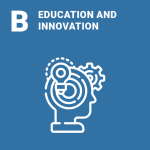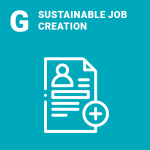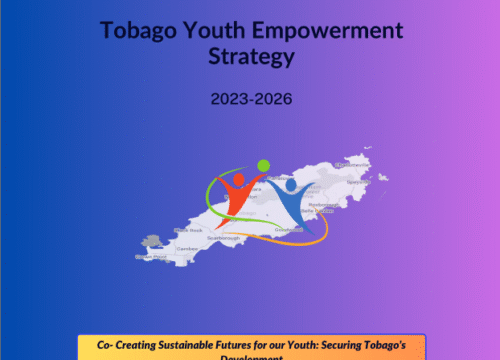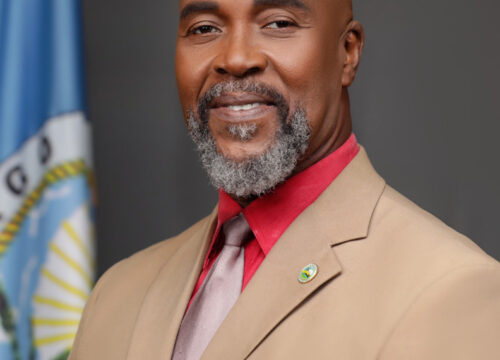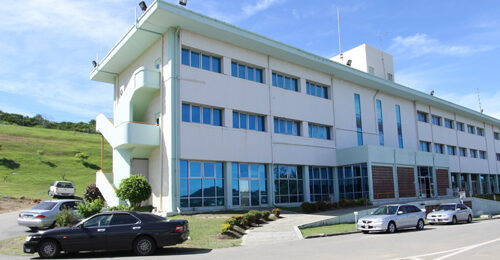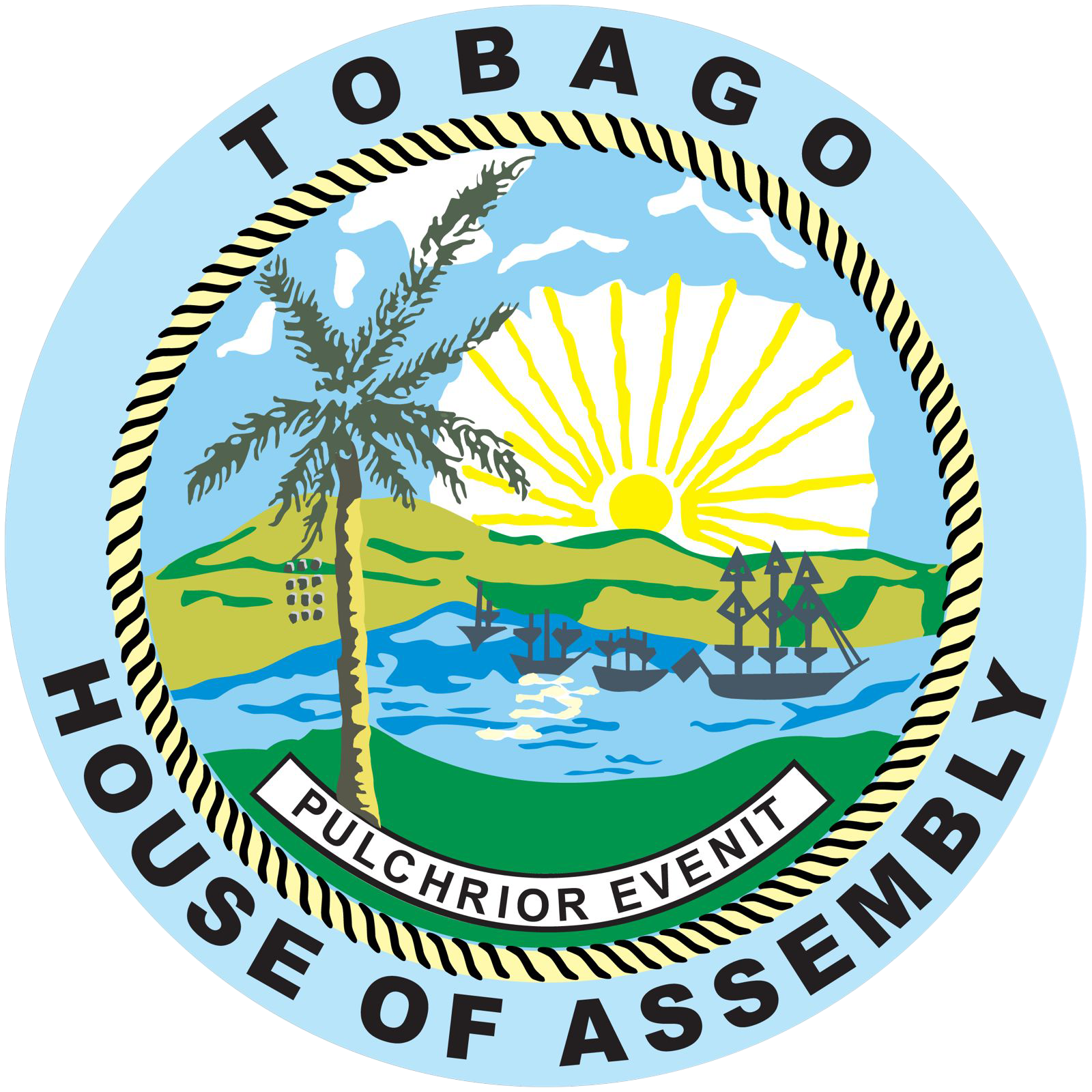DEVELOPMENT AGENDA PRIORITY B: A highly educated and innovative population.
About the
PriorityPerformance
benchmarksMajor
ConcernsSelected
Focus
AreasTargets &
IndicatorsPolicies, Plans
& ProgrammesProjects
PriorityPerformance
benchmarksMajor
ConcernsSelected
Focus
AreasTargets &
IndicatorsPolicies, Plans
& ProgrammesProjects
About priority B
- Tobago’s societal and economic growth is closely linked to a highly educated and innovative population. Education extends beyond formal schooling; it emphasizes all teaching and learning systems, grounded in reasoning and informed action.
- These learning systems are usually integrated into formal educational institutions, such as primary and secondary schools, colleges, and universities. However, they may also be present in traditional learning environments, including homes and community settings, such as recreational areas, where knowledge is conveyed through play, storytelling, and dramatic presentations.
- Thinking about education as encompassing both formal and non-traditional learning environments recognizes the importance of traditional and alternative teaching methods in cultivating a highly educated and innovative population.
- Innovation is based on the notion that ideas rule the world and serve as the bedrock for societal transformation. However, ideas are never complete. Hence, they must always be challenged by existing ways of thinking and doing.
- Innovation will be at the centre of Tobago’s societal and economic transformation, continuously creating and recreating generations of Tobagonians who will find solutions to real-world problems across various issue areas, including education, environmental change, healthcare, and agriculture.
Innovation is based on four core pillars:
- Learning: Challenging and disrupting traditional approaches to knowledge generation.
- Discovery:Creating new approaches to knowledge generation to support dynamic cross-disciplinary learning processes
- Engagement:Collaborating with knowledge holders and epistemic communities to enhance understanding of and gain insight into the solutions to public problems
- Experimentation:Adopting novel approaches to learning through risk-taking and deliberate experimentation.
Primary Performance Benchmark: Priority B
-
Benchmark: Increase Tobago’s workforce aged 20 to 60 with post-secondary training to at least 40% by 2035 and at least 60% by 2045.
-
Indicator of progress/success: Percentage of the Tobago workforce aged 20 to 60 with post-secondary training year-over-year.
-
Benchmark Country: Canada.
Major concerns: Priority B.
| Concerns | Problem Statements |
| Pedagogy | a. Overemphasis on rote-based learning and teaching to the test at the expense of teaching and learning based on rational thought, experimentation and discovery. |
| Failure rates | b. High failure rates at primary and secondary schools. |
| Secondary matriculation | c. Low levels of matriculation from secondary to post-secondary. |
| STEM education | d. Inadequate emphasis and commitment to teaching and learning STEM. |
| Education and skills training | e. Misalignment of “education” and skills training with the demands of a competitive market economy. |
| Post-secondary training | f. Low rates of relevant post-secondary training among the working-age population. |
| Targeted funding | g. Inadequate targeted funding for market-relevant high-level skills training. |
1.0 Selected Focus Areas Priority B
The Division of Education, Research and Technology will support curriculum development to promote and enhance teaching and learning through innovation and discovery, by focusing on the following areas.
- Digital Literacy and Technology:
- Basic Digital Skills: Leveraging digital tools and platforms for information retrieval and presentation.
- Advanced IT Skills: Developing software programs and data analysis tools.
- Digital Innovation: Leveraging digital technologies to create innovative products, services, and business models.
- Critical Thinking and Problem-Solving:
- Analytical Thinking: Analyzing information, identifying patterns, and making informed decisions based on sound reasoning and logical inference to complex problems.
- Creative Problem-Solving: Thinking creatively and developing innovative solutions to complex problems.
- Decision-Making: Evaluating multiple options for making effective decisions based on data and evidence.
- Entrepreneurial Mindset and Business:
- Entrepreneurial Skills: Identifying business opportunities, developing business plans, and managing resources effectively.
- Innovation Management: Managing innovation processes, including idea generation, development, and commercialization.
- Financial Literacy: Understanding and applying financial management, budgeting, and investment principles to real-world problems.
- STEM (Science, Technology, Engineering, and Mathematics) Skills:
- Mathematical Proficiency: Applying mathematical concepts in real-world contexts.
- Scientific Knowledge: Understanding scientific principles, such as ontology, epistemology, and methodology.
- Enhancing the ability of teachers and learners to conduct scientific research and experiments in real-world settings.
- Engineering Skills: Utilizing engineering principles to design and construct solutions to real-world technical problems.
- Communication and Collaboration:
- Effective Communication: Communicating ideas clearly and persuasively in both written and oral forms, utilizing new modes of technology.
- Collaboration and Teamwork: Utilizing digital skills to work effectively with others in cross-functional and diverse teams.
- Interpersonal Skills: Building and maintaining positive relationships with colleagues, clients, and stakeholders, understanding how to leverage those relationships beyond the formal learning environment.
- Resilience: Coping with challenges, setbacks, and change, and persisting in the face of difficulties.
- Environmental and Sustainability Awareness:
- Sustainability Knowledge: Understanding environmental issues and sustainable environmental practices.
- Green Skills: Applying sustainable practices in various fields, including energy, agriculture, and construction.
- Environmental Innovation: Understanding the role of sustainability in promoting social and economic development.
- Cultural and Global Awareness:
- Cultural Competence: Respecting diverse cultures and working effectively in multicultural environments.
- Global Perspective: Developing awareness of global issues and thinking and acting from a global perspective.
- Multilingual Skills: Developing proficiency in more than one language to facilitate international communication and collaboration.
- Identity in Education:
- Cultural Relevance: Understanding culturally relevant knowledge that acknowledges and respects Tobago’s afro-centric heritage in relation to other cultures.
- Student Voice and Choice: Understanding agency and choice in the classroom when sharing opinions and making decisions about responsible learning.
- Wellness Education:
- Social-Emotional Learning (SEL): Integrating social-emotional learning, including self-awareness, self-management, social awareness, and relationship skills, into responsible decision-making.
- Mental Health Support: Leveraging mental health resources and support services, including School Counsellors, Psychologists, and wellness programs, to create a safe environment that encourages students to address issues related to their well-being.
- Physical Health: Understanding how engagement in regular physical activity helps to develop healthy lifestyle choices, promotes physical well-being, and enhances academic performance.
- Supportive Learning Environment:
- Positive School Climate: Understanding the importance of respect and kindness towards others as key contributors to a positive and inclusive school environment.
- The role of teachers: Understanding the role of teachers and staff as mentors and coaches in the teaching and learning process.
- Family and Community Engagement: Understanding the role of families and the community in the educational process to provide students with additional support and resources.
- Knowledge Integration:
- Interdisciplinary Approach: Using transdisciplinary approaches to integrate knowledge across multiple subject areas and learning themes.
- Project-Based Learning: Utilizing project-based methodologies to explore empirically based case studies.
- Assessment and Feedback:
- Holistic Assessment: Understanding the role of holistic assessment in determining academic performance, social-emotional growth and well-being.
- Regular Feedback: Understanding the importance of regular feedback in academic and non-academic contexts as a crucial component of teaching and learning.
MAIN REFERENCE INFORMATION
- World Bank data on education: Trinidad and Tobago
- GoRTT, Ministry of Education: Education Policy 2023-2027
- GoRTT. Ministry of Education. Cultural Transformation Policy 2023-2027.
- The Education System of Trinidad and Tobago: Focusing Early Education
- ICT IN EDUCATION IN LATIN AMERICA AND THE CARIBBEAN A regional analysis of ICT integration and e-readiness
- Quality education and the caribbean single market and economy (CSME) in an increasingly competitive and rapidly changing global environment
- Is the Trinidad and Tobago education system structured to facilitate optimum human capital development? New findings on the relationship between education structures and outcomes from National and International Assessments
- Trinidad And Tobago PISA 2015
- Community Identity Development and Interpersonal Development in Tertiary Education in Trinidad and Tobago
- Project-based learning
- Trinidad and Tobago's seven-level qualification framework.
- The triangle of lifelong learning: Strategies, motivation, and self-belief
- Promoting environmental and sustainability education in the Caribbean: research imperatives to inform practice
Targets and Indicators of Progress/Success
Target-B-1
Achieve at least 50% matriculation into post-secondary education by 2035 and at least 70% by 2045.
Indicator-B-1
Percent matriculation into post-secondary education year-over-year.
Target-B-2
Achieve at least 40% post-secondary graduation by 2035 and at least 60% by 2045.
Indicator-B-2
Percent post-secondary graduation year-over year.
Target-B-3
Invest an appropriate % equivalent of GDP in higher education by 2035 and an appropriate % equivalent of GDP by 2045.
Indicator-B-3
Percentage of GDP equivalent invested in higher education year-over-year.

